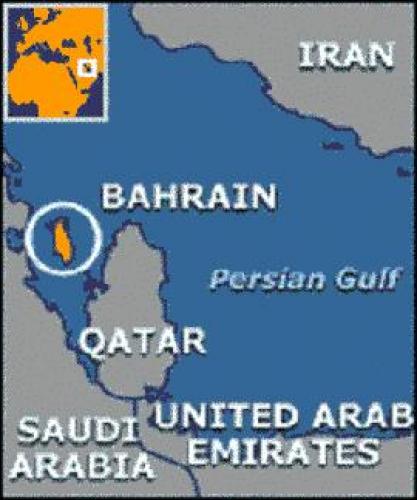international treaties on human rights and the death penalty:International Covenant on Civil and Political Rights
Convention on the Rights of the Child
Convention Against Torture and Other Cruel, Inhuman or Degrading Treatment or Punishment
Statute of the International Criminal Court (which excludes the death penalty) (only signed)
situation:The offences for which capital punishment either can or must be applied are: aggravated murder, murder, other offenses resulting in death, terrorism, rape of child, arson of a public or Government building, even if it does not result in death; drug trafficking; treason, espionage, other military offenses.
In March 1999 Sheikh Hamad Bin `Issa Al Khalifa succeeded his late father Sheikh Salman bin ‘Issa al-Khalifa as emir. The change of government brought about some democratic reforms. Bahrain became a constitutional monarchy in 2002 and Sheik Hamad’s title was changed to king.
On October 31, 2002, Bahrain held parliamentary elections for the first time in nearly 30 years, to elect the 40-member Council of Deputies. Women participated for the first time, voting and standing as candidates, though failing to win a seat.
The first execution in 20 years took place on March 29, 1996. Bahrein resumed execution in 2017, for terrorism (
3). The previous execution was in July 2010, when a Bangladeshi national, Jassim Abdulmanan, was executed for murdering another Bangladeshi man.
Execution is carried out by firing squad. The inmate is strapped to a chair with their eyes covered and a sponge placed on their chest so stop the blood from spreading.
In 2016, for the sixth year running, no executions were carried out. However, in 2015 the courts passed
eight death sentences,
five of which for "terrorism".
The war of terrorIn August 2013, Bahrain’s King Hamad decreed stiffer penalties for “terror acts” in the country rocked by a Shiite-led uprising since 2011. Under a new law, suspects convicted for bomb attacks will be sentenced to life imprisonment or to death in cases of casualties. The minimum penalty for an attempted bombing is 10 years behind bars. The crimes previously carried unspecified jail terms. Suspects found guilty of “raising money for a terrorist organisation” will be handed jail terms ranging 10 years to life.
In 2015, 5 death sentences were issued for terrorism.
On 15 January 2017, Bahraini authorities executed
3 Shi'ite Muslim men convicted of killing an Emirati police officer and two Bahraini policemen in a 2014 bomb attack. The executions came less than a week after the country's highest court confirmed the punishment against Abbas al-Samea, Sami Mushaima and Ali al-Singace, the first death sentences to be carried out since 2010. Activists condemned the executions and warned the move would undermine security. "This is a black day in Bahrain’s history. It is the most heinous crime committed by the government of Bahrain and a shame upon its rulers ... This act is a security threat to Bahrain and the entire region," said Sayed Ahmed Alwadaei of the Bahrain Institute for Rights and Democracy.
On 3 April 2017, the King of Bahrain approved the amendment to Article 105 (b) of the Constitution to extend the jurisdiction of military courts to civilians. Military jurisdiction over civilians had been criticized by the Bahrain Independent Commission of Inquiry (BICI) in 2011 and the authorities had taken this into account. However, with the new constitutional amendment, the courts have the power to prosecute any civil accused of threatening the security of the state, whereas before civilians could only be judged by military tribunals in the event of a state of emergency. The reform was motivated as a contrast to the action of Shiite groups supported by Iran and criticized by human rights organisations.
The death penalty on women
If a pregnant woman is sentenced to death, the execution will be suspended until three months after she delivers, according to Article 334 of the Criminal Procedure Code. Yeshiwork Zewdu, a maid and migrant worker from Ethiopia, is currently sentenced to death.
United NationsOn 21 May 2012, Bahrain was reviewed under the Universal Periodic Review of the UN Human Rights Council. The Government rejected recommendations to establish an official moratorium on executions with a view to abolishing the death penalty, stating that such measures would be inconsistent with Bahrain’s Constitution.
On 19 December 2016, Bahrain abstained on the Resolution on a Moratorium on the Use of the Death Penalty at the UN General Assembly, as in 2014, 2010 and 2008. Bahrain, in 2012 and 2007, voted against.











